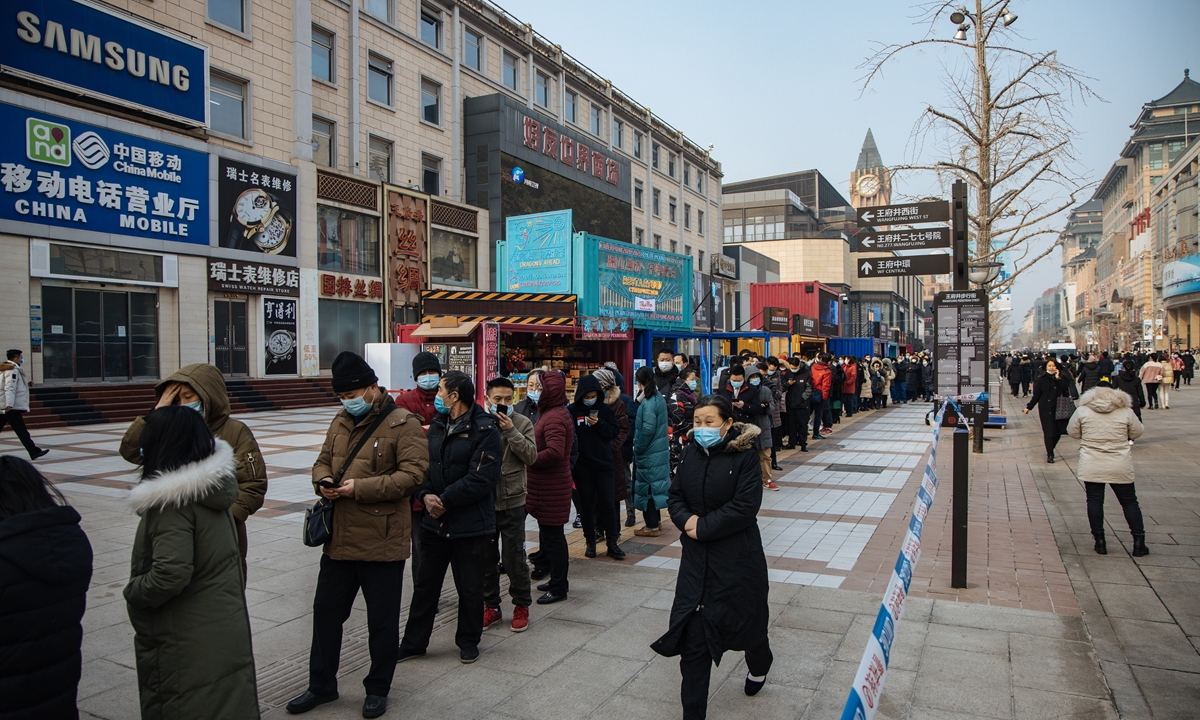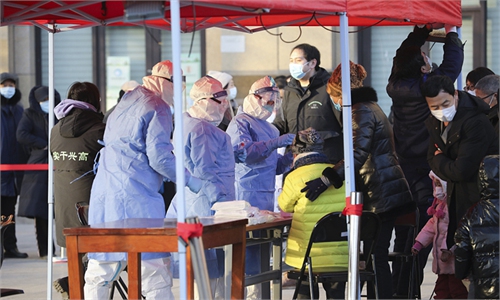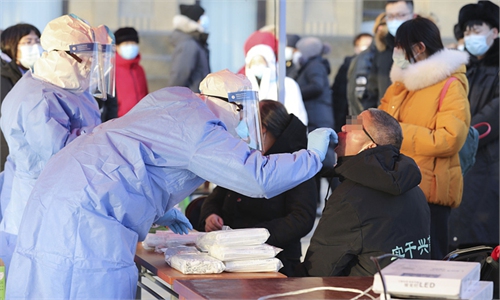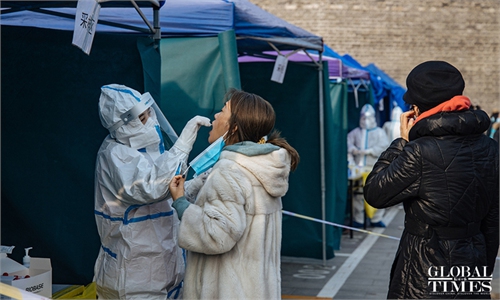Beijing eyes antibody tests on overseas arrivals to the capital from 40 days ago to trace source

Residents line up to get nucleic acid testing in Wangfujing, Beijing's Dongcheng district on Friday. Photo: Li Hao/GT
Beijing will conduct serum antibody tests for all inbound overseas travelers who have entered Beijing since December 10 to find out the transmission chain in the latest cluster infections in the capital's Daxing district, the Beijing government said on Friday.
The measure was announced when four districts in the Chinese capital covering at least 4 million residents either started or finished district wide nucleic acid testing.
Chinese health experts said antibody tests for inbound travelers revealed that the epidemic in Daxing district has lasted for about one month before the first case was reported on Sunday, and nucleic acid testing won't work in finding out the first patient. As the political center of the country, it's very significant to be extreme cautious in tracing the source of the virus and controlling the epidemic, experts said.
Beijing will strictly implement the new "14+7+7" model -- 14-day centralized medical quarantine, one week of home isolation or centralized quarantine, and another week of health monitoring -- for all inbound travelers from overseas, and investigate the possible risks posed by inbound travelers or imported products, Tian Wei, a Beijing municipal government official, said at Friday's media briefing.
Since Tiangongyuan in Daxing district reported the first confirmed COVID-19 case on Sunday, the latest cluster infections in Daxing district have seen 16 cases in less than a week.
And the source of the coronavirus has not been found, but the Beijing health authority said two of the patients carried a highly transmissible strain of the novel coronavirus first detected in the UK, raising concerns that the Daxing infections may also have come from overseas.
The testing for antibodies from all inbound travelers, which some people believed was unusual in tracing the source of the virus, may indicate that it's difficult to find the first patient in Daxing's infections.
A Beijing-based health expert who requested anonymity told the Global Times on Friday that the measure was quite normal in tracing the source of the virus, and different measures such as nucleic acid testing and antibody tests suit different situations.
Antibody tests could help find people who contracted the virus as early as two months ago, but nucleic acid testing cannot, Jiang Qingwu, a Shanghai-based epidemiologist, told the Global Times.
For Daxing infections, Beijing is targeting overseas travelers because the source of the virus may come from overseas and may expand to cover other groups if needed, the anonymous expert said.
Another reason for conducting antibody tests was nucleic acid testing may fail to find all the virus-positive patients due to insensitive reagents, Jiang said.
Using nucleic acid testing or antibody tests does not necessarily indicate the severity of epidemic or difficulty in tracing the virus, experts said.
But they said Beijing's political status of being the center of the country also requires it to be extremely cautious, and needs to exert all measures to find the first patient.
Beijing announced it would conduct nucleic acid testing for all residents in Dongcheng and Xicheng districts on Friday, and Daxing and Shunyi districts have finished their testing.




